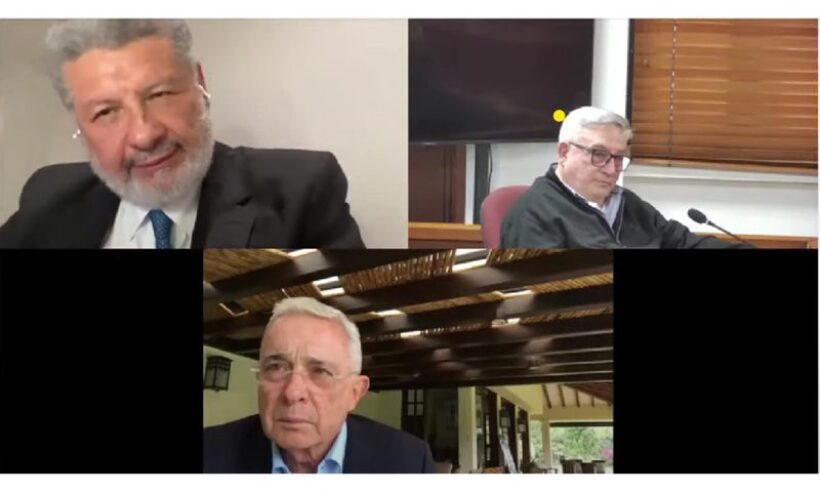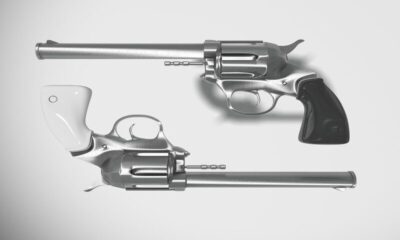Uribe’s Legal Battle Paused Amid Controversy Over Judge’s Impartiality in Historic Trial
The trial against former Colombian President Álvaro Uribe Vélez for alleged witness tampering has hit a significant roadblock after the Supreme Court of Justice of Colombia ordered the temporary suspension of proceedings. The tribunal determined that the judge overseeing the case, Sandra Liliana Heredia, may have acted without impartiality. This decision came in response to a legal action filed by Uribe’s defense, which claimed that his fundamental rights to due process had been violated.
Jaime Granados, Uribe’s lead attorney, argued that Judge Heredia should have halted the initial hearing when the defense filed a motion for her recusal, rather than dismissing it as an attempt to delay proceedings. “At the moment, we are not pursuing a lawsuit against the judge. What we want is for Álvaro Uribe’s right to be respected—that of an impartial judge—and the judge has not demonstrated the impartiality required by international standards and our own Constitution,” he told the broadcasting network Caracol Radio.
Despite the suspension, all evidence gathered so far remains valid, and the trial will resume once the tribunal issues a final ruling on the recusal motion. Judge Heredia announced that she must refer the appeal to a circuit judge, who will have three days to decide whether to grant the request to remove her from the proceedings, according to Medellín newspaper El Colombiano. The trial is expected to resume in late March.
However, this delay poses a serious risk to the case, given that it must be concluded before the statute of limitations expires on October 8, 2025. Within the next eight months, 105 witnesses must present their testimonies, and the court must analyze extensive documentary, audio, and video evidence. Both the initial circuit court and the tribunal handling appeals must reach a verdict before the deadline to avoid case dismissal due to expiration.
This trial represents an unprecedented legal challenge in Colombia, as no former president has ever faced such proceedings.
Uribe, Colombia’s president from 2002 to 2010, faces charges of bribery, procedural fraud, and bribery in a judicial proceeding. Prosecutors must determine whether he instigated others to manipulate witness testimony in an attempt to mislead the judiciary for his benefit.
The case was born in 2012 when Uribe filed a complaint against Senator Iván Cepeda, accusing him of abusing his public office, aggravated defamation, and procedural fraud. Cepeda had presented testimonies from former paramilitaries Juan Guillermo Monsalve and Pablo Hernán Sierra, alleging Uribe’s ties to paramilitary groups in Antioquia. However, in 2018, the Supreme Court dismissed Uribe’s complaint and instead launched an investigation into whether he had manipulated witnesses to discredit Cepeda.
Key evidence includes a 2018 recording made by Monsalve, in which Uribe’s legal envoy, Diego Cadena, is heard offering legal benefits in exchange for altering testimony. Cadena allegedly made payments and attempted to persuade various imprisoned witnesses to change their statements. The case became even more complex when Cadena himself was charged with procedural fraud and bribery in a separate trial.
Three key prosecution witnesses include: Juan Guillermo Monsalve, a former paramilitary who secretly recorded Diego Cadena offering him legal benefits; Deyanira Gómez, Monsalve’s former partner, who collaborated with authorities and provided the spy watch that captured Cadena’s offer; and Carlos Enrique Vélez, alias “Víctor,” another former paramilitary, who claims Cadena offered him a bribe to testify in Uribe’s favor
Uribe’s defense also has crucial witnesses, including: Diego Cadena, who insists that any offers made were independent of Uribe’s knowledge; Carlos López, alias “Caliche,” a friend of Monsalve, who claims he tried to persuade Monsalve to support Uribe out of personal admiration rather than direct orders and several ex-paramilitaries, who allege that Cepeda initially offered them benefits to testify against Uribe, although their credibility has been questioned.
Three main pieces of evidence play a pivotal role in the case: Recordings capturing Cadena’s interactions with Monsalve; records of payments to alias “Víctor”, which the prosecution views as proof of bribery, though the defense argues Uribe was unaware; and intercepted communications between Uribe and Cadena, which could confirm Uribe’s involvement, in spite of the fact that the defense contends they were illegally obtained and should be inadmissible.
Headline photo: The entire trial against former Colombian President Álvaro Uribe Vélez has been streamed live, allowing the public to follow every development in real time (Image: Radio Nacional de Colombia / Youtube)

























